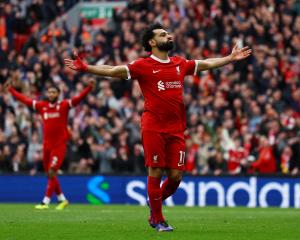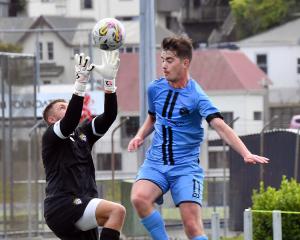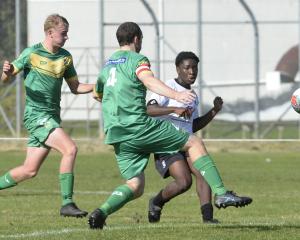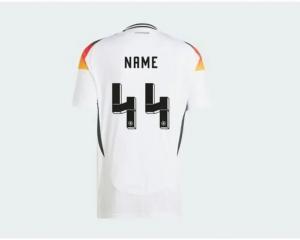They say money cannot buy happiness. This is open to debate.
What money can buy is a significantly longer list: presidential elections, pectoral implants, and - it seems increasingly apparent - sporting championships.
The amount of money spent in football, for example, is truly staggering.
Take the 2008 transfer of Cristiano Ronaldo to Spanish club Real Madrid. Real paid 80 million ($NZ97 million) to Manchester United simply to buy out the Portuguese player's contract. The new, six-year contract Madrid offered Ronaldo involved an 8 million signing-on fee and a basic wage of around 540,000 per week before tax.
Per week.
When all the costs surrounding Ronaldo's transfer are added together, the total amount Real Madrid will have paid for the Portuguese superstar comes to over 258 million.$NZ550 million. One quarter of Vanuatu's GDP.
Real Madrid is an enormous global brand and one of the most successful clubs in the history of football.
Enormous though Ronaldo's fee is, the club is one of the few in world football that can afford such a fee internally, without significant outside investment.
It is when outside investors do become involved with clubs that the perilous financial situation of football rears its head. And this recent phenomenon is best demonstrated by the meteoric rise to prominence of Manchester City.
Prior to last year's English Premier League title, Manchester City's last championship came in 1968. In the subsequent 42 years the club has drifted between divisions, never rising above mediocrity. As recently as 1996, City was languishing in the third division of English football.
In 2007, the club was bought by Thaksin Shinawatra, a billionaire and former prime minister of Thailand.
Shinawatra's ownership of Manchester City was limited to one year of reckless spending before his involvement in a political corruption scandal forced him to sell the club in 2008 to Sheikh Mansour bin Sayed.
Mansour is a member of Abu Dhabi's ruling family. He is royalty. He has a personal fortune of more than 7 billion.
Upon purchasing majority shares, Mansour proceeded to pump unprecedented sums of money into the club. In three years, he has spent around 481 million on the purchase of 30 new players alone.
The club's wage bill for the 2011-12 financial year was a face-melting 174 million. When Mansour took control of the club in 2008, that wage bill was just 34 million.
When wages, player purchases, and infrastructure developments are added and the operating turnover of the club is subtracted, the amount of money Mansour has personally spent during his tenure amounts to an incredible 560 million - over $NZ1.1 billion.
Despite winning the 2011-12 Premier League title, gargantuan sponsorship deals and the most lucrative television payout in world sports, City's financial records for 2011-12 reveal a loss of 197 million.
To put a point on this figure, the furore surrounding the Otago Rugby Football Union's reckless finances came from revelations of a $2 million debt.
Although these two competitions are worlds apart, the sheer disparity between those figures can not help but raise eyebrows.
The emergence of the Mansourian ''sugar daddy'' has thus far yielded mixed results on the pitch.
Chelsea, purchased by Russian oil magnate Roman Abramovich in 2003, has enjoyed the Russian's patronage to the tune of around 2 billion over his eight-year reign.
As a direct result of Abramovich's billions, Chelsea has experienced the most successful period in the club's history, but the acceptance of such riches comes at high stakes: the club has hired and fired no fewer than six managers since 2007.
At the other end of the scale is Paris Saint-Germain, owned by Qatari investment company QIA.
The Parisian club has spent more than 210 million on players in the past two years, but its deep pockets have not yet translated into success on the pitch. PSG lost out on the French league title last year to lowly Montpellier - a team ranked 80-1 to win the title at the start of the year.
The perils of selling a club's soul to the highest bidder are demonstrated aptly by Spanish side Malaga. After being saved from financial meltdown by Qatari investors in 2010, the club embraced its owners' new-found wealth mercilessly: 50 million was spent on players in the summer of 2011, and 12 million was pledged to building new youth facilities for the club.
However, the club's new owners quickly lost interest in their new toy, and crises ensued. The wage bill was unsustainable without continued investment, and the reluctance of the owners to provide the club with such investment saw an almost total collapse in Malaga's finances.
Despite securing a lucrative spot in the Champions League, the club found itself under a transfer ban, forced to sell some of its best players simply to pay the wages of the remaining squad members, and Malaga's immediate future remains uncertain.
Money might buy players, titles, and glory, but not always happiness. Manchester City may be in a purple patch right now, but fans drooling over the prospect of their own clubs being financially doped should, perhaps, be careful what they wish for.











